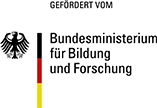The European Union and Vietnam have finally ratified the EU-Vietnam Free Trade Agreement (EVFTA), after nearly a decade of negotiations. The deal, which was signed in June 2019, marks a significant milestone in the EU`s efforts to deepen its ties with Southeast Asia, and is expected to boost trade and investment between the two regions.
The EVFTA is one of the most ambitious free trade agreements that the EU has ever signed, covering a broad range of trade-related issues, including goods, services, investment, and intellectual property. Under the agreement, the EU will eliminate nearly all tariffs on Vietnamese goods over the next decade, while Vietnam will gradually open up its markets to EU companies.
The agreement is expected to benefit both sides, with the EU gaining greater access to Vietnam`s growing market of nearly 100 million people, and Vietnam gaining access to the EU`s market of more than 500 million consumers. It is also expected to provide a much-needed boost to the Vietnamese economy, which has been hit hard by the COVID-19 pandemic.
The agreement is not just about trade, however. It also includes provisions on labor rights, environmental protection, and human rights, which are designed to ensure that the benefits of the agreement are shared fairly among all members of society. These provisions are particularly important given Vietnam`s history of labor rights abuses and environmental degradation.
There are, of course, some concerns about the impact of the agreement on certain sectors of the economy. The Vietnamese textile industry, for example, which employs around 2.5 million people, is expected to face increased competition from EU companies. However, the Vietnamese government has promised to provide support to the industry to help it adapt to the new environment.
Overall, the ratification of the EU-Vietnam Free Trade Agreement is an important step forward for both the EU and Vietnam. It demonstrates the EU`s commitment to strengthening its ties with Southeast Asia, while also providing much-needed economic benefits to Vietnam. While there are challenges to be overcome, the agreement has the potential to bring significant benefits to both sides, and to contribute to greater stability and prosperity in the region as a whole.
